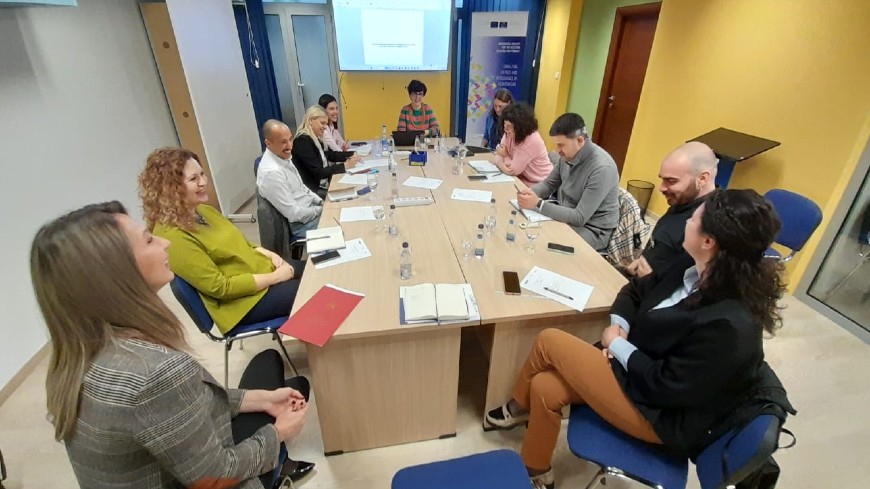The report on the Montenegro's LGBTI National Strategy 2019-2023 was presented at the Europe House in Podgorica on 5 March 2024. The presentation took place at the presence of representatives from national authorities, including the Ministry of Human and Minority Rights, the Ombudsperson, the Ministry of Health, as well as international partners, and local NGOs.
Drafted with the support of the joint European Union and Council of Europe action "Combating hatred and intolerance in Montenegro", and by a Council of Europe expert, the report serves as a comprehensive analysis of the progress made in implementing the LGBTI Strategy in Montenegro from 2019 to 2023. Beyond being an assessment, it serves as a valuable instrument for supporting institutions, civil society organisations (CSOs), media, and the public in recognising key challenges.
The report examines three strategic goals outlined in the Strategy: 1) enhancing social acceptance of LGBTI individuals, 2) refining the normative framework and its application to safeguard the rights of LGBTI individuals, and 3) enhancing access to employment, services, and support for the LGBTI community. Noteworthy educational and informative activities conducted during the reviewed period contributed to achieving specific measures outlined in these goals, such as training sessions for law enforcement professionals and information sessions for CSOs addressing LGBTI issues.
However, the report acknowledges that fostering social acceptance remains a challenge. Additionally, it proposes the establishment and enhancement of a structured reporting and monitoring mechanism for the new Strategy, involving all relevant stakeholders, from the ministerial level to local authorities and CSO’s working on the field.
This activity significantly contributed to enhancing the collective understanding of the challenges faced by the LGBTI community, identifying potential steps towards solutions and played a crucial role in informing the development of the new LGBTI Strategy 2024-2028.
The initiative was supported by the European Union and the Council of Europe, through the joint action"Combating hatred and intolerance in Montenegro", implemented within the joint European Union/Council of Europe programme "Horizontal Facility for the Western Balkans and Türkiye”.




